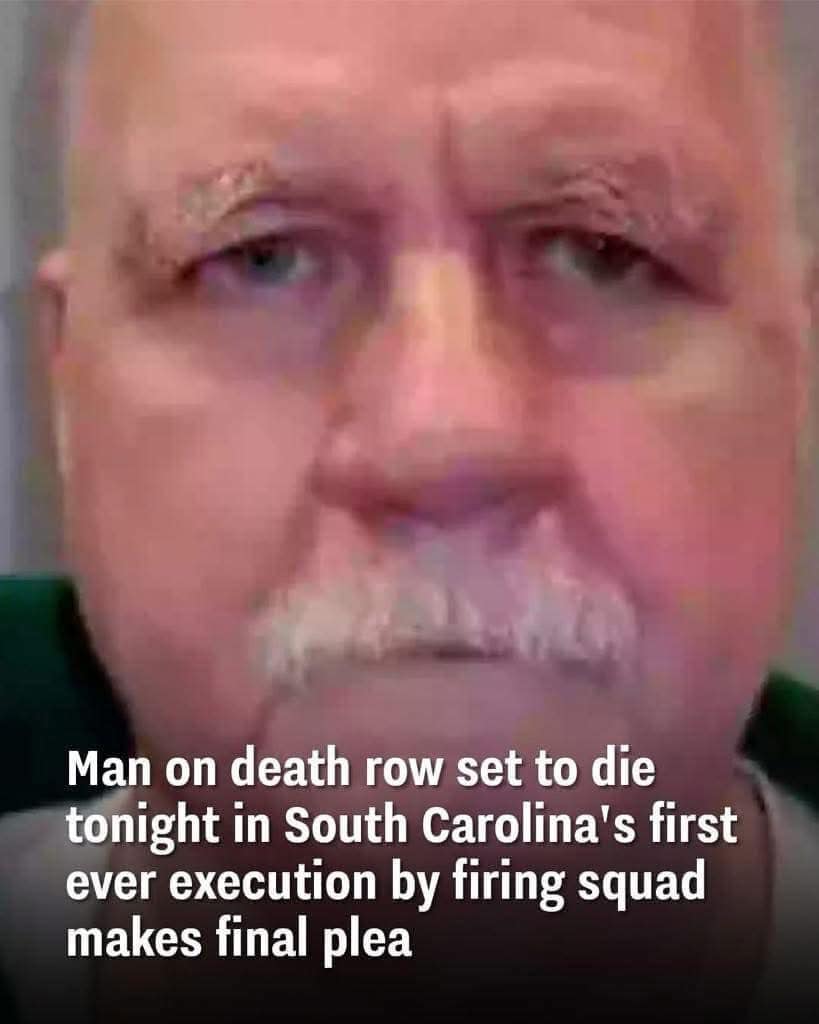Following his conviction, Sigmon was sentenced to death and spent more than 20 years on death row, filing multiple appeals, all of which were ultimately denied. In his final days, he made a last-minute plea for clemency, urging South Carolina Governor Henry McMaster to reconsider his case. However, his request was denied, allowing the execution to proceed as scheduled.
Sigmon opted for the firing squad over other available execution methods, expressing concerns that lethal injection might result in unnecessary suffering and that the electric chair could cause extreme pain. Under South Carolina’s execution protocol, three volunteer prison employees, armed with rifles, fired simultaneously at a target placed over his heart. Witnesses reported that Sigmon showed brief signs of movement before he was pronounced dead at 6:08 p.m.
His execution has reignited national debates about capital punishment and the methods used to carry it out. South Carolina reinstated the firing squad as an execution option in 2021 after experiencing difficulties in obtaining lethal injection drugs. The decision to use this method has drawn both support and criticism, with opponents questioning its humanity and effectiveness.
In his final statement, Sigmon cited religious beliefs opposing the death penalty, arguing that “nowhere does God in the New Testament give man the authority to kill another man.” His words reflect the ongoing moral and legal discussions surrounding the death penalty in the United States.
While Sigmon’s execution marks the end of his case, it has fueled further conversations about the future of capital punishment in South Carolina and beyond.

